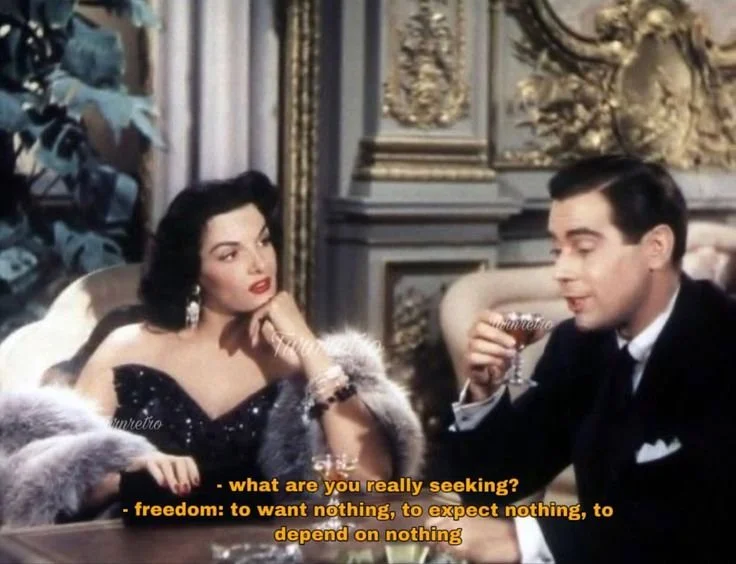Why You Should Embrace The Non-Linear Career Path
If life were a movie, you’d graduate from high school, seamlessly pick your area of study, earn your degree, and then stroll into your dream job the day after commencement. But, in reality, this narrative is far from the experience of most. Instead of a neat and linear path, many of us find ourselves on winding roads with unexpected detours. I’m someone who has fully embraced a non-linear career path—though I certainly didn’t plan it this way.
For decades, we’ve been told that success follows a clear and predictable formula. Our well-meaning parents and teachers emphasized the importance of picking a practical major, securing a stable job, and climbing the corporate ladder. The expectation was that with hard work and persistence, we’d advance up the ranks, perhaps staying at the same company for years.
But today’s world operates by a different set of rules. The average person changes jobs 12 times over the course of their career. Whether motivated by curiosity, opportunity, or necessity, career transitions are becoming the norm, not the exception. Yet even as job-hopping becomes more commonplace, many of us wrestle with the stigma attached to it, especially if we’ve shifted industries or roles multiple times.
It’s time to stop clinging to outdated career expectations. The rapid evolution of technology and the modern workplace means that skills we couldn’t have anticipated 10 years ago are now in high demand. Take Instagram, for instance—it didn’t even exist a decade ago. Yet today, “content creator” and “social media manager” are well-established career paths. As technology continues to evolve, new roles and industries will emerge, presenting opportunities that don’t yet exist. In a world like this, adaptability is not only valuable, but essential.
If, like me, you find yourself on a non-linear career path, it’s important to recognize that this unconventional trajectory can be your greatest asset. Here are three ways to embrace it and live a life you love:
1. Ditch the Guilt
Life rarely unfolds according to plan, and that’s okay. Many of us carry guilt for not following a “practical” path, particularly if our degrees no longer align with our careers. But guess what? There's no shame in that. I, for one, have traversed a professional landscape that spans finance, HR, marketing, operations, and project management. My interests, though, extend far beyond these domains—I’m also passionate about writing, web design, photography, and floral design. Unlike others in my family, I haven’t pursued a single, linear career path, despite my traditional education.
For years, I questioned whether I should have chosen the “safe” and predictable route. But I realized that this guilt was misplaced. There’s nothing inherently wrong with following a traditional career, but it’s equally valid to forge a different path. Embrace your individuality, and celebrate your courage to carve out a career that aligns with who you are, rather than conforming to an outdated mold.
2. Don’t Get Hung Up on Job Titles
Job titles can be deceiving. Focusing too narrowly on a specific title might prevent you from exploring opportunities that could significantly propel your career forward. It’s important to remain open to new possibilities and take calculated risks—especially when they involve stepping outside your comfort zone. Senior-level positions, in particular, require a broad understanding of various functions, so gaining experience across departments can be incredibly valuable. Cross-functional exposure not only enhances your understanding of how a business operates but also allows you to identify areas where your expertise can be applied in unexpected ways.
3. Write Your Own Career Story
Over time, I’ve crafted a career that blends my formal education, professional experience, and creative passions into what I like to think of as my “unicorn job.” Even if your resume contains seemingly unrelated jobs from different industries, there’s almost always a common thread that ties your experiences together.
It’s crucial to recognize your transferable skills—those abilities that transcend specific job roles and are applicable in various contexts. In my HR days, I noticed many candidates would omit experiences from their resumes because they didn’t view them as relevant to the role they were applying for. In doing so, they often missed the chance to highlight important skills like teamwork, customer service, or leadership. Whether you worked at a coffee shop or led a corporate team, the abilities you gained can be woven into your career story.
Ultimately, a fulfilling career isn’t necessarily about following a straight line; it’s about aligning your strengths with areas where you want to grow. Success is rarely a linear process, but that’s what makes it so rewarding. Embrace the twists and turns—they are what make your journey uniquely yours.

